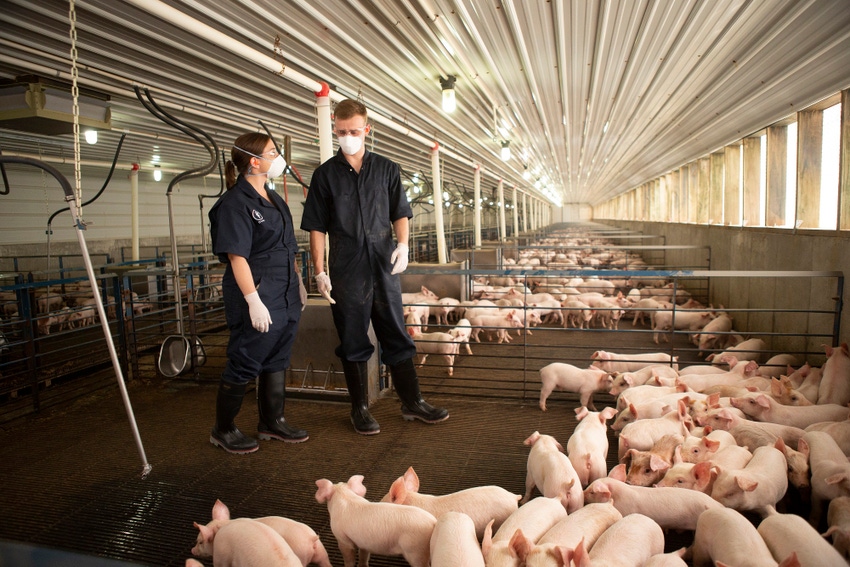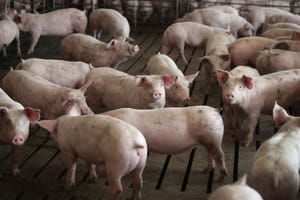Current visa programs fail to meet the workforce needs of U.S. pork producers.
March 5, 2021

Taking care of our hogs is a 24/7 job. It requires hard work and dedication every day, no matter the season. Unfortunately, the U.S. pork industry is suffering from a serious labor shortage, negatively impacting farms and processing plants. While the U.S. pork industry offers good jobs with solid pay and benefits, most Americans don’t live near hog farms or harvest facilities, and rural populations continue to decline. As such, the industry relies on foreign-born workers. However, current visa programs fail to meet the workforce needs of U.S. pork producers and other year-round livestock farmers. If left unaddressed, pork production will be constrained, leading to higher food prices for consumers.
Here in Illinois and across the country, a common theme with pork producers is the frustration of finding on-farm labor. A hog farm is a year-round commitment and finding good, dedicated employees is a challenging task. Despite offering competitive salaries above minimum wage and the opportunity of advancement within the production system, farmers continue to struggle with a lack of dedicated and available employees.
The H-2A visa program represents a potential solution to the labor shortage facing livestock farmers, but changes are needed. In its current form, the program cannot meet the workforce needs of hog farmers because it is designed for seasonal agriculture. Legislation introduced in the U.S. House of Representatives on March 3 is a good start towards changing the program.
The Farm Workforce Modernization Act, introduced by Reps. Reps. Zoe Lofgren (D-Calif.) and Dan Newhouse (R-Wash.), would amend the H-2A program to allow a capped number of visas for farm workers to work year-round, among other provisions.
The National Pork Producers Council (NPPC) believes this bill is a step in the right direction and looks forward to working with Congress to enact meaningful labor reform that both opens the H-2A program to year-round labor without a cap and provides legal status for agricultural workers already in the country.
As Illinois hog farmer Jared Fehr, a fifth-generation hog farmer from Woodford County, explained: “Labor is an issue on our farm. The job market is competitive in Illinois and the pool of potential employees seeking to obtain a job that requires manual labor continues to decline. Our family hog farm operation is dependent upon H-2A workers to help us sustain our current level of productivity to support our business today and for our future generations. Revisiting the length of time that H-2A workers can remain in the United States would also help the success of our operation. There is a significant amount of training that is involved when we hire employees, and the seasonality of the current visa program forces us to maintain a ‘revolving door’ for employee training.”
Unfortunately, Fehr’s story is not unique and is being repeated throughout the country. Without H-2A reform to support a viable, year-round workforce for U.S. pork producers, pork production will continue to be constrained and lead to farms and packing plants shutting down, causing serious financial harm to the communities in which they operate.
NPPC is actively advocating for reform to the H-2A visa program that establishes a legal and productive workforce, as well as a pathway to legal status for those with agricultural experience already in the United States. Expanding the H-2A visa program to year-round labor is clearly needed to ensure that U.S. livestock agriculture can compete globally and continue to provide safe and affordable pork to Americans and consumers worldwide.
Source: Jennifer Tirey, Illinois Pork Producers Association, who is solely responsible for the information provided, and wholly owns the information. Informa Business Media and all its subsidiaries are not responsible for any of the content contained in this information asset.
You May Also Like



